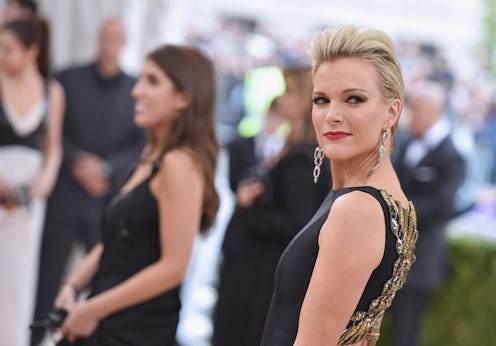News
Megyn Kelly's Advice About Sexual Harassment
When the news broke that Fox News' former chief executive Roger Ailes had been accused of sexual harassment by more than two dozen women (he's firmly denied those claims), Gretchen Carlson wasn't the only anchor involved. A decade ago, Megyn Kelly was allegedly sexually harassed by Ailes — a claim Ailes denies — but she didn't report the alleged abuse until others came forward years later. "There's no question that I was in a position where I had to choose between my ethics and my loyalty to Roger," Kelly told Adweek. Ailes' lawyer, Susan Estrich, wrote in a statement that "Mr. Ailes denies [Kelly's] allegations of sexual harassment or misconduct of any kind," CNN reported.
Kelly's story echoes the concerns of so many women in the workplace. In a 2001 study in the Journal of Social Issues, psychologists Julie Woodzicka and Marianne LaFrance observed 50 women receive inappropriate comments during what the women thought were real job interviews — and not a single woman reported their interviewer. There are many reasons for this.
In the case of Woodzicka and LaFrance's study, women were afraid they wouldn't get the jobs they were interviewing for. Many people would fall into unfavorable financial situations if their workplaces don't address the harassment against them, or if they quit or were fired over the situation. And according to Louise Fitzgerald, professor emerita of psychology at the University of Illinois at Urbana-Champaign, "highly paid women with prestigious careers also put up with harassment, because 'the higher you go up the employment ladder, the more difficult it is to find a job to replace the one you're leaving,'" Fitzgerald told Bloomberg Businessweek.
Kelly wasn't immune to those concerns, either; she acknowledged the realities and unfortunate consequences of reporting alleged sexual harassment. "I really felt like my career was on the line and I knew I would never compromise myself," she told Adweek. "So I was very worried that my job was going to go away. The situation is so tricky to navigate. I feel for the women out there who are dealing with it right now."
But what would Kelly now advise a woman in a similar situation to do? It depends. "If you're in a situation like mine where the person harassing you has complete control over the organization then you need to understand the risks of that," she told Adweek. "What needs to be emphasized right now is not the duties of the victims. What needs to be emphasized is the duties of management to create a safe workspace and create safe and meaningful off ramps for these women if they want to report."
Through her answer, Kelly emphasized that rather than putting the onus on women to deal with the people harassing them, the responsibility lies with the workplace's management. Her assessment of the situation was realistic about the consequences for reporters of harassment, yet she pointed out the very valid point that it should never be on victims of sexual misconduct to solve the issue.
